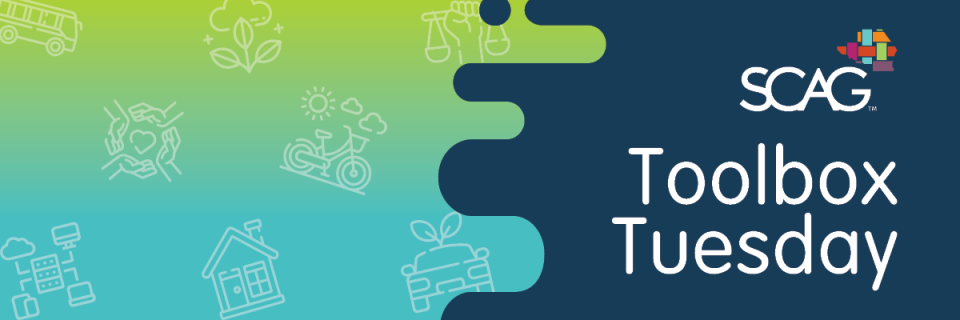Toolbox Tuesday
Build Your Skill Set and Strengthen Your Community

Complementary Professional Development
In alignment with SCAG’s strategic goals to produce innovative solutions that improve the quality of life for Southern Californians and be the foremost data information hub, Toolbox Tuesday aims to provide a range of planning knowledge and technical skills for local planners including training on various tools and resources on emerging planning topics such as equity, environmental justice, traffic safety, housing, transportation, sustainability, spatial analytics, programming language, and data literacy.
Toolbox Tuesday offers professional, complementary, and virtual training to local government staff and other stakeholders within our six-county region through the monthly webinar. As a bonus, most trainings provided through Toolbox Tuesday are eligible for AICP Certification Maintenance credits.
Trending and Timely Topics
Toolbox Tuesday provides a quick, one-half-hour-long focus on a single subject. The sessions are planned at a level that a variety of people—including elected officials, local planners, community organizers, students, and community members—can gain practical skills and knowledge on timely planning issues. Offering this training virtually and free of cost provides all local jurisdictions access to high-quality training and technical assistance. By bringing together planners from diverse areas in the region, the sessions allow jurisdictions to share and learn from each other about the successes and nuances on various planning topics.
For additional information regarding technical assistance and feedback about Toolbox Tuesday, please contact the Local Information Services Team (LIST) at list@scag.ca.gov.
